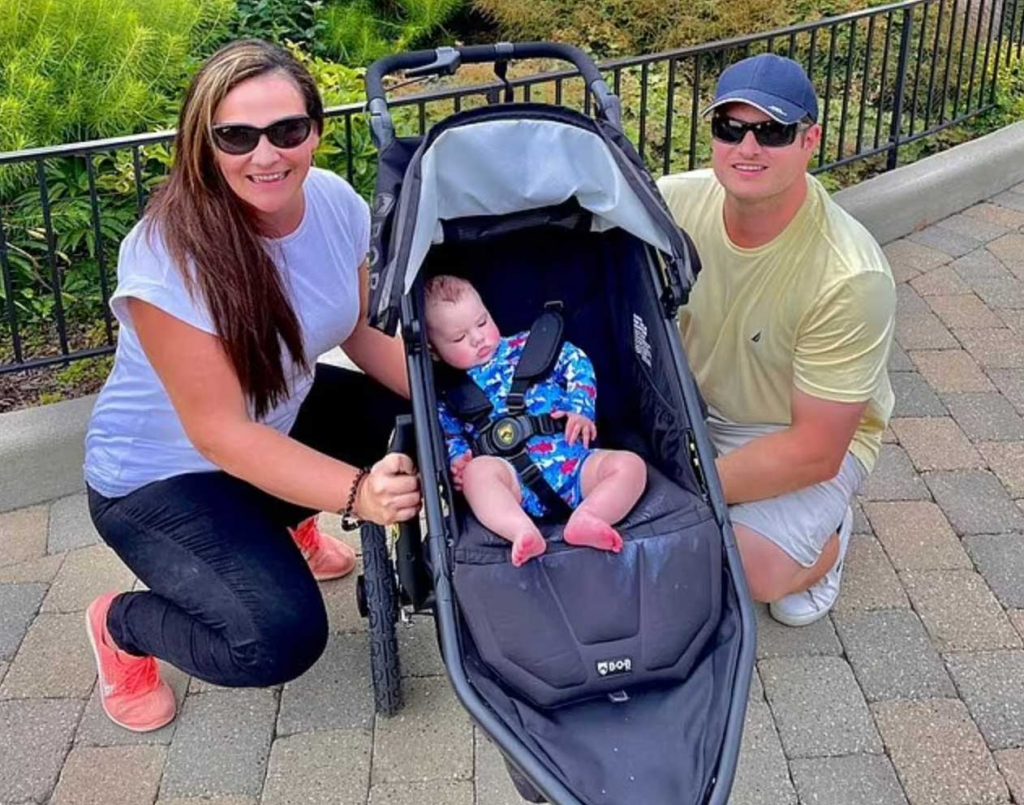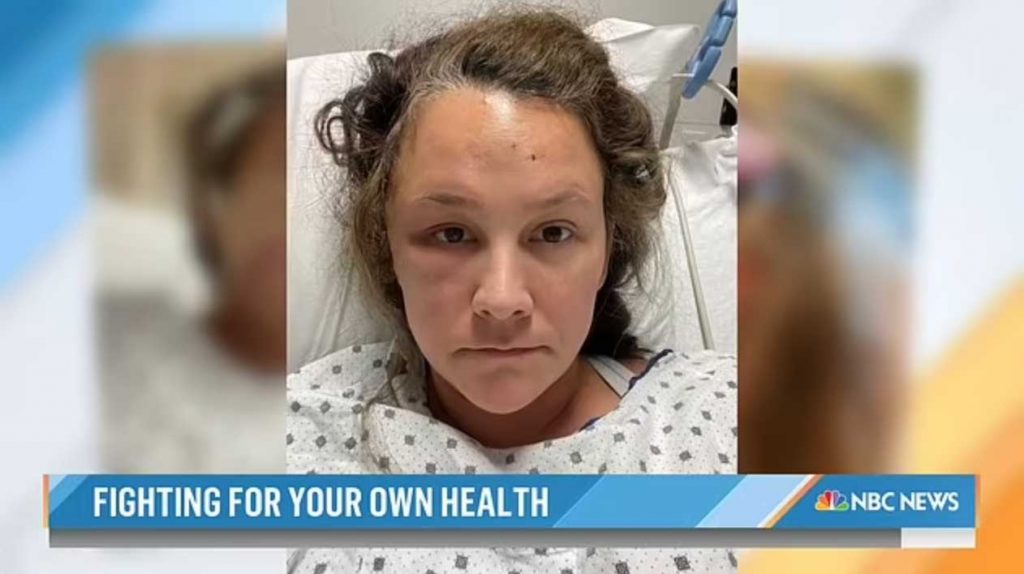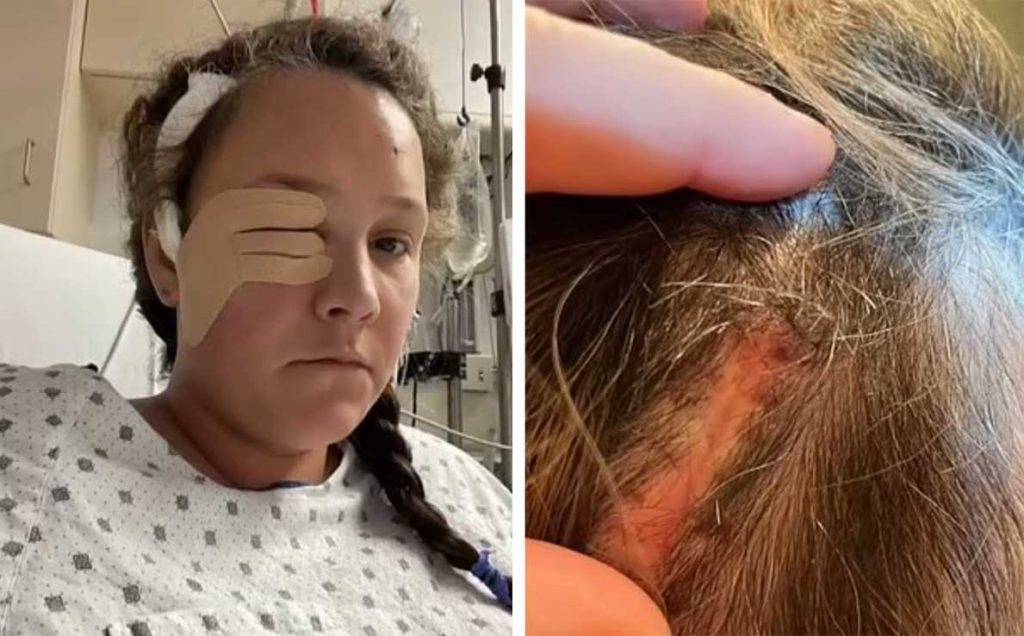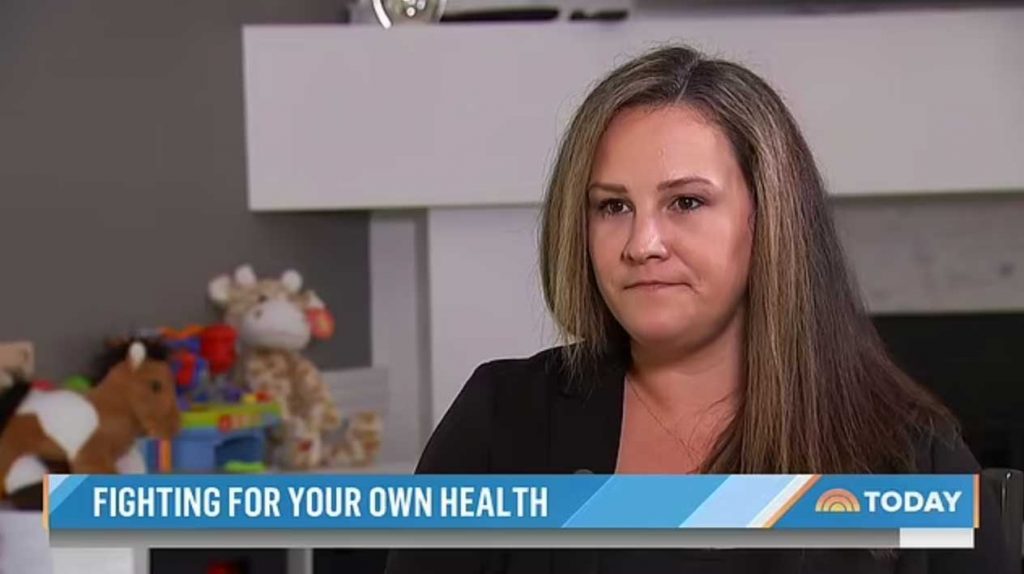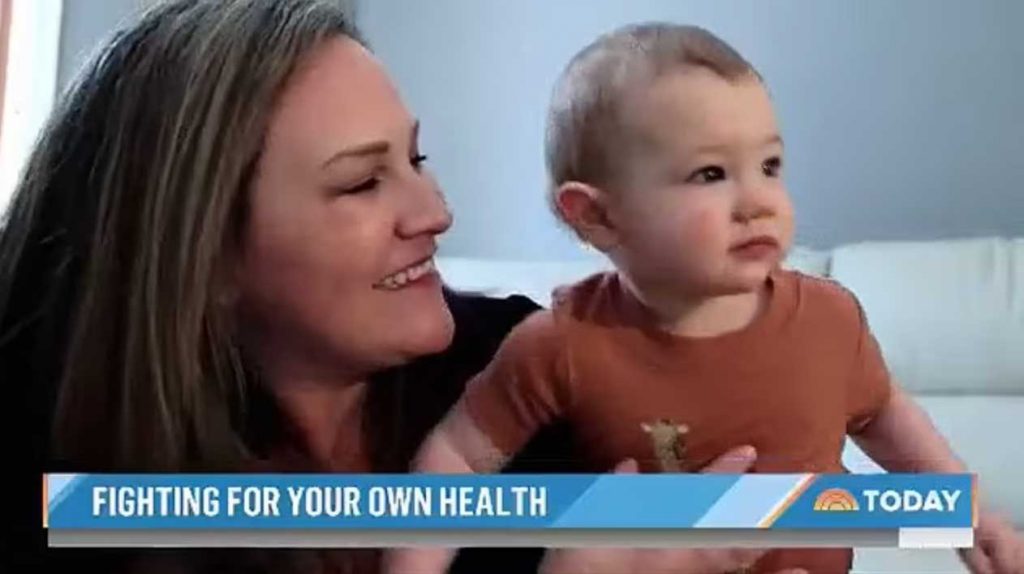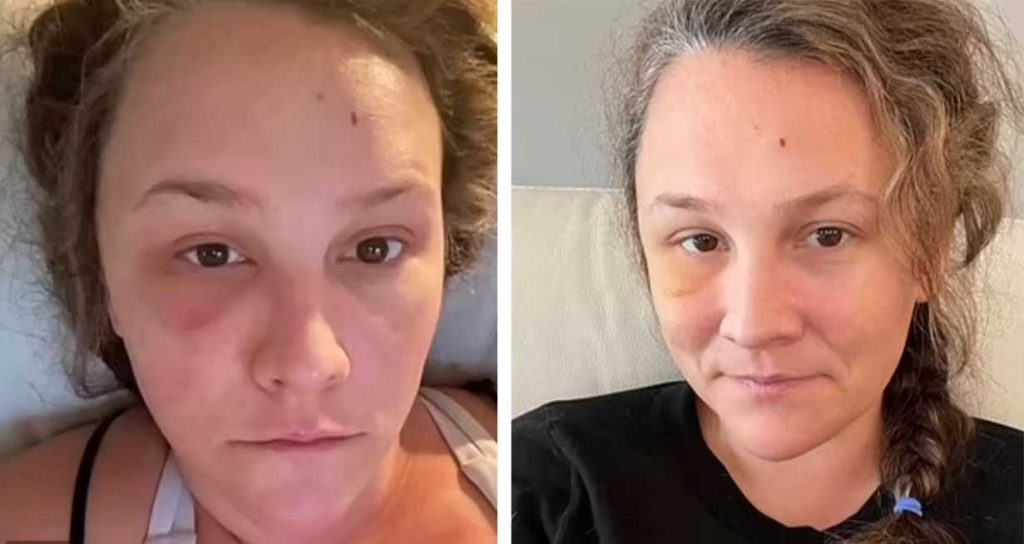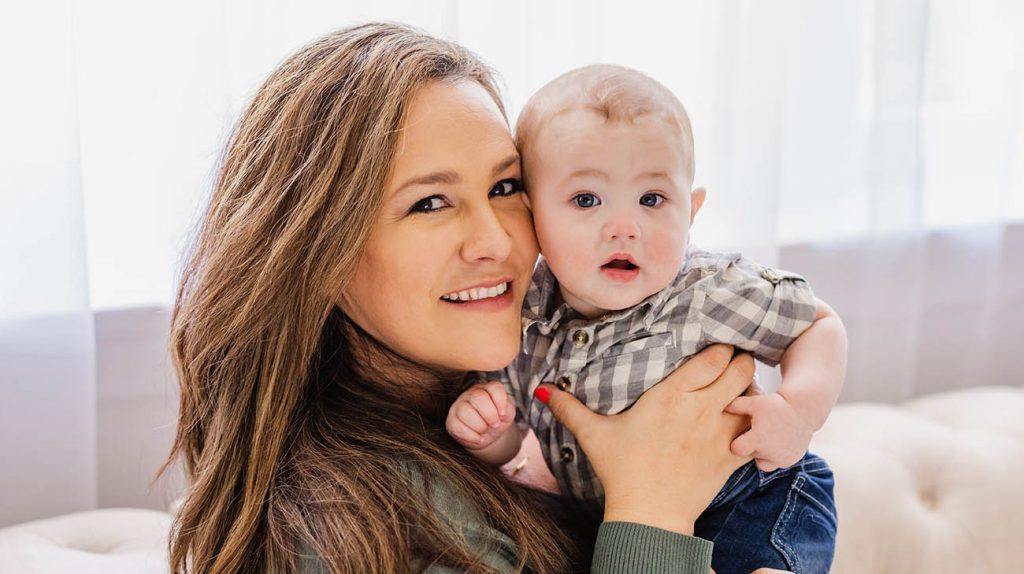A mom who had up to 15 mini-strokes per day and was so afraid she’d die that she penned a goodbye note to her young boy believes surgery saved her life.
Kate Sippel, 39, of Ohio, dismissed early symptoms as a result of being unfit after motherhood. She went to the ER after collapsing at home and being ‘paralysed for 30 seconds’ barely three months after giving birth to her son, John David.
Doctors first attributed her ailment to the pressure of being a new mother following a C-section. But Sippel, a veterinarian, sought out additional doctors, who diagnosed her with moyamoya, a rare disorder in which a constriction or blockage in arteries at the back of the skull reduces blood circulation to the brain, resulting in strokes.
Her mini-strokes ended this year after she underwent surgery to increase blood flow to her brain via an artery in her head.
Doctors at the Cleveland Clinic, where she was treated, claimed pregnancy was doubtful to have caused her illness. However, pregnant women may see their disease worsen.
According to Johns Hopkins Medical Center, only around one in a million Americans has moyamoya, which is more frequent in women. Medics aren’t sure what causes the artery to get stopped, creating the illness, although it might be hereditary.
Individuals who suffer frequently have mini-strokes, as well as headaches, difficulty speaking or comprehending people, and uncontrollable movements. In many situations, it may be managed by taking blood-thinning medications, which let blood flow more easily to the brain.
However, for certain people, such as Sippel, surgery is the only option.
According to Sippel, the first mini-stroke occurred when the mom was riding her horse Norwin in a competitive show jumping event.
She expressed that suddenly, it seemed like someone struck her in the face. She was heading straight for a jump when she lost all mobility and feeling in her left side. She remained in this position while her horse performed three more leaps until returning to her previous position.
Sippel first dismissed the incident as a coincidence, blaming it on being out of shape after motherhood. A few weeks later, though, she collapsed at home and was unable to get back up for up to 30 seconds. It hit again only 24 hours later, when her hubby Fred was driving the family around.
She explained, the only thing that came out of her lips was garbled sounds. She couldn’t talk, and she couldn’t move her mouth, tongue, or anything else.
They went to an emergency room doctor in July 2021, terrified by the incidents, who stated it was most likely related to the pressure of childbirth and released her. But Sippel was so concerned about the strokes which she had never had previously while pressured that she thought she would die, leading her to compose a message for her son when he was grown.
With tears in her eyes, she read the letter, which stated, ‘I want to be there to offer you so much guidance and hug and kiss you every day. I’m sorry I won’t be able to attend. I hope this is all for vain and that I will grow old and be able to tell you all of those things in reality. I love you. Your mother.’
She then saw a neurologist, who, after an MRI scan, identified her with mini-strokes, or transient ischemic episodes caused by moyamoya. She was given blood thinners in the beginning, yet she started experiencing up to 15 mini-strokes every day.
The physicians stated it was okay to have two to three of these strokes a day, which seldom result in brain damage, but they would examine again in six months. However, Sippel began seeking for another doctor and was finally accepted to the Cleveland Clinic in Ohio for therapy.
Doctors performed cerebral bypass surgery on her, making a tiny incision on the left side of her brain and isolating the blocked part of an artery. It was then redirected through a different artery in her scalp. She was released two days later and has not had another stroke since.
The neurosurgeon who performed Sippel’s operation, Dr Mark Bain, stated that lesser types of moyamoya can be addressed with aspirations and other blood thinners.
However, since Sippel was having recurrent strokes and accompanying symptoms, she was concerned that the blockages may increase, leading to a full-blown stroke.
He explained, when the brain has adequate blood flow, it minimises the amount of wispy immature blood vessels that might induce brain haemorrhage. It’s incredible what the brain is capable of.
When asked if Sippel’s illness was associated with delivery, he stated that the condition is doubtful to be attributed to pregnancy.



